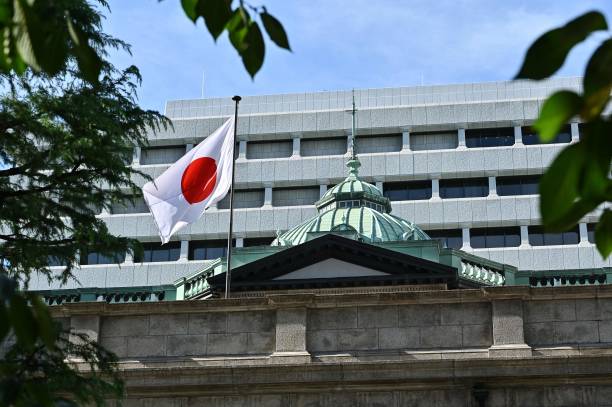
Investing.com-- The Bank of Japan is expected to keep interest rates unchanged at the conclusion of a two-day meeting on Friday, although policymakers could still present a hawkish outlook on expectations of higher inflation.
The BOJ is expected to keep its short-term benchmark rate at 0.25% on Friday, a Reuters poll showed.
Markets were pricing in no changes by the BOJ after it hiked interest rates by 15 basis points in late-July and struck an unexpectedly hawkish tone. The move had caused a sharp sell-off in stock markets, especially as strength in the yen caused an unwinding in the carry trade.
The BOJ’s hike came after it ended its ultra-dovish, negative rate regime in March this year.
BOJ policymakers said that inflation was moving higher in line with the bank’s expectations, and that it would likely raise interest rates further. An uptick in Japanese inflation was driven chiefly by improving wage growth across the country.
Governor Kazuo Ueda said in recent comments that the central bank was open to raising interest rates further, and he was uncertain over just how high rates could rise.
The central bank could potentially reiterate this view on Friday, although it is still expected to take a wait-and-see approach in the near-term.
“We do not expect any change to monetary policy settings at this week’s BOJ policy meeting… BOJ guidance points to a gradual tightening cycle with the policy rate reaching 1% by late-2025,” ANZ analysts wrote in a note.
They said that Ueda was also likely to face some scrutiny over interest rates from new leadership in the Japanese government. The Liberal Democratic Party is set to hold leadership elections next week, after Prime Minister Fumio Kishida said earlier this year he will not seek reelection.
Before the BOJ decision, consumer price index inflation data for August is also due on Friday, with a Reuters poll forecasting an uptick in price pressures.
How will the Nikkei 225 react?
Japanese stocks had fallen sharply after the BOJ hiked rates in late-July, with the Nikkei 225 entering a bear market.
But while the index has since recovered most of its August losses, it is still trading well below highs seen earlier this year.
Local stocks are expected to show limited reaction if the BOJ keeps rates unchanged. But any hawkish signals could potentially trigger renewed weakness in Japanese markets.
How will USDJPY react?
The Japanese yen firmed sharply since the BOJ’s end-July meeting. The USDJPY pair- which gauges the number of yen required to buy one dollar- slid to its lowest level in over nine months in recent sessions, briefly breaking below 140 yen.
The yen is expected to show little reaction if the BOJ keeps rates unchanged as expected, while any hawkish signals are likely to spur more strength in the currency.
* The content presented above, whether from a third party or not, is considered as general advice only. This article should not be construed as containing investment advice, investment recommendations, an offer of or solicitation for any transactions in financial instruments.






